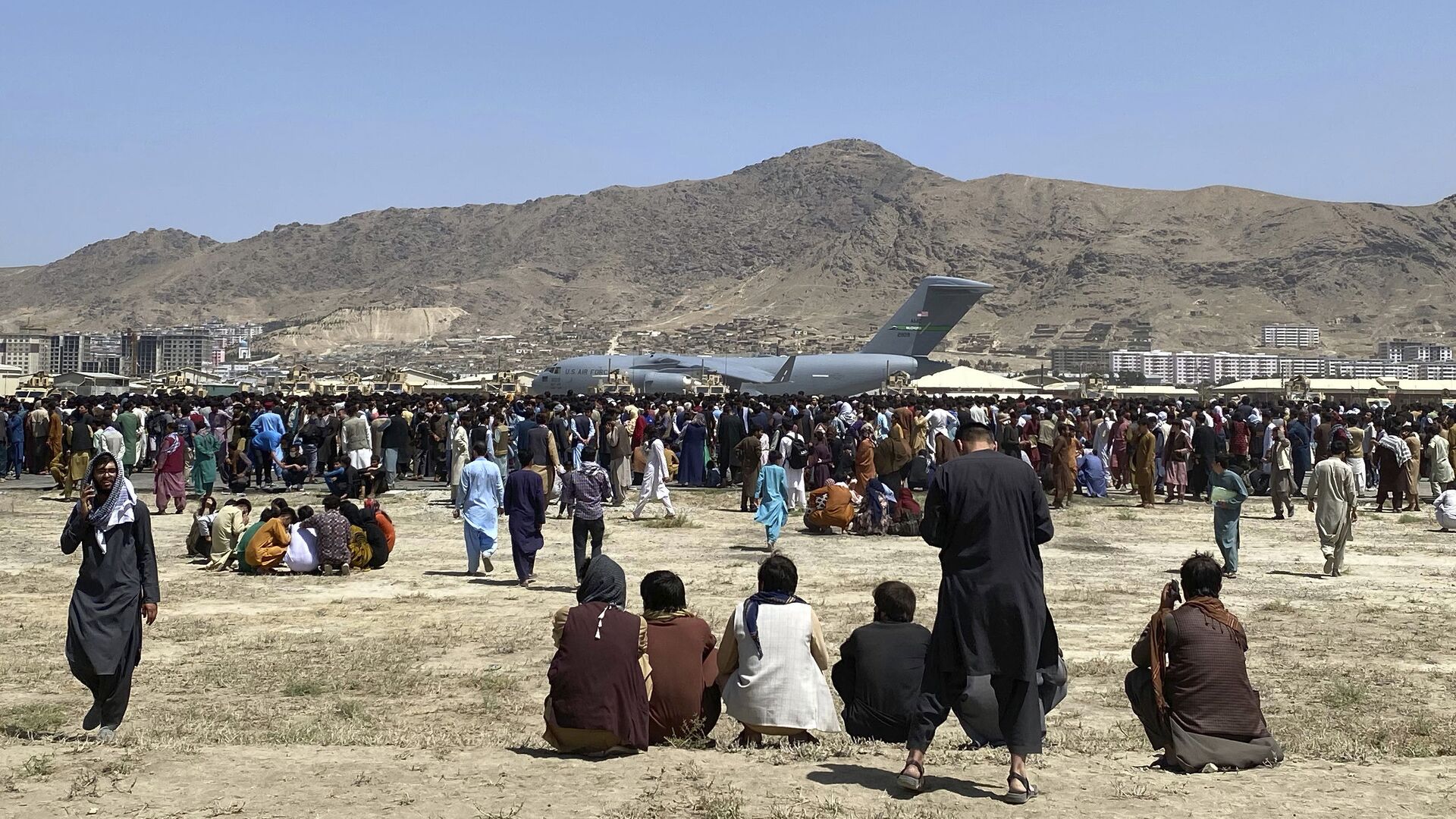Carry On Up The Khyber: How Will Britain Be Able To Say No To Thousands More Afghan Migrants?
14:25 GMT 24.08.2021 (Updated: 15:15 GMT 28.05.2023)

© AP Photo / Shekib Rahmani
Subscribe
US President Joe Biden has set a deadline of 31 August to withdraw all Afghan refugees who are considered as being at risk from the Taliban. US forces will not remain beyond that date and British troops are also expected to pull out.
More than 50,000 Afghans have been evacuated from Kabul since the Taliban* took over the capital on 15 August.
Around 7,000 of them have arrived in Britain but Prime Minister Boris Johnson has pledged to take in a total of 20,000, many of whom will have come via refugee camps in Pakistan.
We will continue to use every humanitarian and diplomatic lever to safeguard human rights and the gains made in Afghanistan over the last two decades.
— Boris Johnson (@BorisJohnson) August 24, 2021
The Taliban will be judged by their deeds and not their words.
But questions remain - who decides who is allowed to come to Britain and who is not, and what about the thousands of Afghans who have already fled the country and have travelled, or are travelling, overland to Europe?
In the past few years, thousands of Afghans have fled fighting and poverty in their homeland and travelled via Iran and Turkey into Greece and onwards into the European Union.
But many of these have kept under the radar, smuggling themselves on board lorries or paying people traffickers to ship them across the English Channel until they arrive in Britain and then claim political asylum.
It is estimated there are 2.6 million Afghan refugees around the world, not including the millions who have migrated to other countries and are now documented Afghan-Americans, Afghan-Germans, etc.
Starting today, Airbnb will begin housing 20,000 Afghan refugees globally for free.
— Brian Chesky (@bchesky) August 24, 2021
In 2016 almost 10,000 Afghans were returned to Afghanistan by European Union countries after their asylum applications were rejected.
But after the fall of Ashraf Ghani's pro-Western government and the return of the Taliban, it is expected that most EU countries and Britain will find it harder to reject asylum applications from Afghans.
Ghani himself has fled to the United Arab Emirates, which has an Afghan diaspora of around 300,000.
The compassion and generosity of the British people is inspiring.
— Keir Starmer (@Keir_Starmer) August 23, 2021
Thank you to Rabbi Elchonon Feldman and all those across our country who are helping Afghan refugees.https://t.co/GRDU0br3Wo
So what will happen in Britain?
The leaders of the G7 countries - Britain, France, Canada, Germany, Italy, Japan and the United States - are holding a virtual summit on Tuesday to discuss how to handle the Afghan exodus.
Last week Johnson said Britain owed "a debt of gratitude to all those who have worked with us to make Afghanistan a better place over the past 20 years" and added that many of them were “now in urgent need of our help” as they could be targeted for retribution by the Taliban.
The UK's Home Secretary, Priti Patel, told The Times last week that those who come to the UK illegally would have to join the queue of asylum seekers.
But the sympathy of British voters for the plight of the Afghans is unlikely to last long, especially if hordes turn up speaking little English, possessing few skills and reliant on welfare benefits and the National Health Service.
Then the government would follow the template designed for Syrian refugees, where women with children, those who had survived torture, and people with serious medical conditions were made the priority.
There is also the ever-present fear and danger that among the thousands of genuine refugees will be potential terrorists, either “lone wolves” or those deliberately sent to Britain to cause terror.
BREAKING: Multiple Afghan refugees have been FLAGGED as possible terrorists.
— ACTforAmerica (@ACTforAmerica) August 23, 2021
Germany suffered a spate of violence from former refugees.
In July 2016, Riaz Khan Ahmadzai, 17, wounded five passengers on a train near Würzburg before being gunned down by police. He had reportedly shouted “Allahu Akbar (Allah is Great)” before the attack and a hand-made Daesh* flag was found in his room at his foster parents’ house.
A week later, a 21-year-old Syrian refugee killed his pregnant girlfriend with a machete in Reutlingen and another Syrian blew himself up outside a bar in Ansbach, wounding 15, after his asylum application was rejected.
* The Taliban and Daesh are terrorist organisations banned in Russia and many other nations.



